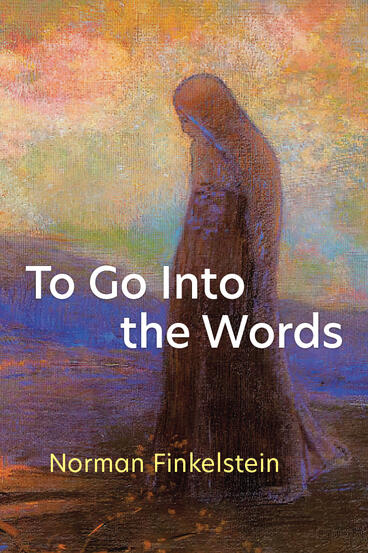To Go Into the Words
A critical look at transcendence and a radical delight with language
Description
To Go Into the Words is the latest book of critical prose from renowned poet and scholar of Jewish literature Norman Finkelstein. Through a rigorous examination of poets such as William Bronk, Helen Adam, and Nathaniel Mackey, the book engages the contemporary poetic fascination with transcendence through the radical delight with language. By opening up a given poem, Finkelstein seeks the “gnosis” or insight of what it contains so that other readers can understand and appreciate the works even more.
Pulling from Finkelstein’s experience of writing thirteen books of poetry and six books of literary criticism, To Go Into the Words consistently rewards the reader with insights as transformative as they are well-considered and deftly mapped out. This volume opens the world of poetry to poets, scholars, and readers by showcasing “the gnosis that is to be found in modern poetry.”
Norman Finkelstein is the author of fourteen books of poetry and six books of criticism. His most recent critical work is Like a Dark Rabbi: Modern Poetry and the Jewish Literary Imagination (Hebrew Union College Press, 2019); recent volumes of poetry include In a Broken Star (Dos Madres Press, 2021) and Further Adventures (Dos Madres Press, 2023). He writes and edits the poetry review blog Restless Messengers (https://www.poetryinreview.com/). He is Professor Emeritus of English at Xavier University in Cincinnati, where he taught for forty years.
Reviews
“Finkelstein, one of our most perceptive poet-critics, gives us masterful readings of important contemporary poets in essays that integrate his decades-long conversation with their work. The last sections examine the gnostic impulse in poetry and commentary of secular Jewish poets, including Finkelstein himself, that leads them, through language, to ‘circle around some. . . absent center which still has compelling power.’”
- Elizabeth T. Gray Jr.
—Elizabeth T. Gray Jr. is a poet, translator, and corporate consultant. Her most recent book of poetry is Salient (New Directions 2020).
“We approach truth, said Gershom Scholem, not by systems but by commentary. In these essays on an array of poets ranging from William Bronk to Nathaniel Mackey, Norman Finkelstein provides commentary informed by a host of systems—deconstruction, the New Criticism, Freudian psychoanalysis, Marxian materialism, and more. Standing above them all is the idea of gnosis, the quest for insight into who we are and who we might become. And, in Finkelstein’s comments on midrash, we find the best commentary yet on Finkelstein’s own poetry. Open this book and open the world.”
- Robert Archambeau
—Robert Archambau, author of Poetry and Uselessness from Coleridge to Ashbery and Alice B. Toklas is Missing
“For decades, Norman Finkelstein has mined the deep interiority of fellow poets for whom writing extends beyond creative expression and cultural commentary into the realm of the spirit. In To Go into the Words, he continues his groundbreaking work by exploring the visionary poetics of writers as varied as Helen Adam, Michael Palmer, and Nathaniel Mackey. What makes this book—and Finkelstein’s work as a whole—stand out is that in chapter after chapter we see the Philosopher’s Stone being polished by someone who knows that the most engaging criticism is, in fact, a form of celebration.”
- Derek Pollard
—Derek Pollard, Poets on Poetry Series Editor and author of On the Verge of Something Bright and Good (Barrow Street, 2021)

